As visa challenges and global talent mobility continue to evolve, Rice University, a top research university in the United States, is rapidly expanding its global presence, most notably in India. With the recent launch of Rice Global India in Bengaluru and deepening partnerships with premier Indian educational institutions, Rice is positioning itself at the forefront of international collaboration in science, engineering, and entrepreneurship.
In this exclusive interview with APAC Media, Dr. Caroline Levander, Vice President for Global Strategy, Rice University, discusses what’s driving this India-focused expansion, how the university is embracing digital learning and AI, and what global career opportunities Indian students can expect.
Rice University has recently expanded into India with the new hub in Bengaluru. What prompted this move, and why now? Are there plans for further expansion beyond Bengaluru?
Rice University is expanding its global footprint with a strong focus on India, one of the world’s fastest-growing education and technology hubs. Rice Global India, headquartered in Bengaluru, serves as Rice University’s vibrant link to India’s growing innovation and academic ecosystem. By collaborating with leading institutions like IIT Kanpur and IISc, it brings together bright minds to spark new ideas in energy, technology, and entrepreneurship.
Rice builds upon partnerships started in 2020 with the Indian Institute of Technology Kanpur (IITK) and the founding of a joint Energy Materials Institute. In 2023, the collaboration expanded with two formal strategic partnership agreements — one with IITK and one with the Indian Institute of Science (IISc) — laying the foundation for advanced research initiatives and faculty and student exchange. Discussions are now underway with IIT Madras and others. These aren’t just symbolic ties; they come with dedicated funding through the Rice-IISc and Rice-IITK Strategic Collaboration Awards, targeting areas like clean energy, AI, and biotechnology.
What’s driving this momentum is a deep respect for India’s scientific ambition and a shared desire to tackle global challenges—be it sustainability, computing, or public health. As Rice leaders note, today’s problems require international cooperation, and India presents a unique opportunity to scale solutions that matter worldwide. The partnership is seen not only as a strategic move but also to deliver lasting social and technological impact.
At the core of this collaboration is a people-first approach, with faculty and students from both sides connecting through labs and innovation hubs. Rice sees India as more than a partner—as a space where shared ideas thrive, shaping the future of global education and research.
Digital learning and AI are transforming classrooms globally. How is Rice University integrating these technologies into its teaching and research models
Rice University has launched Rice Digital Learning and Strategy, a newly reimagined initiative that expands upon its former Rice Online Learning platform. This shift marks a broader commitment to integrating digital tools across all areas of education, from undergraduate programs to professional and global learning, aimed at enhancing access, inclusion, and the overall learning experience.
The initiative aligns with Rice’s long-term strategic goals of improving workforce development in Houston and Texas, expanding global access, and supporting students regardless of financial means. University leaders emphasize that digital learning now plays a central role in education, not just through online courses, but as a core component of all teaching environments, both on campus and beyond.
Rice Digital Learning and Strategy will focus on five pillars: increasing access and equity, supporting dynamic teaching, fostering community, leveraging AI to boost learning outcomes, and expanding the university’s reach. The initiative aims to strengthen Rice’s position as a leader in digital education both locally and globally.
Rice University is launching a new Bachelor of Science in Artificial Intelligence in the Fall 2025 semester. This makes the university one of the first to offer a dedicated undergraduate degree in AI. It’s all part of Rice’s plan to lead in this crucial field, helping shape how AI is developed and used. You’ll find the program in the Computer Science Department, offering students a solid AI foundation without needing a graduate degree.
The new major reflects a university-wide focus on responsible, interdisciplinary AI education, with applications spanning health, sustainability, and resilient communities. Rice University believes that the major aims to equip students not just as skilled technologists but as thoughtful leaders capable of using AI for societal good. The George R. Brown School of Engineering and Computing will play a central role in these efforts, building on Rice’s strengths in ethical computing and innovation.
The program responds to the increasing global demand for AI expertise by offering a cohesive curriculum that prepares students for careers in this transformative field. Students will gain technical depth, critical thinking skills, and the flexibility to explore diverse AI applications.
Could you share some successful use cases of AI-driven or digitally enhanced education currently being implemented at Rice?
Rice University has been a pioneer in leveraging digital tools and AI-driven innovations to enhance education and broaden access to learning. One of the most impactful initiatives is OpenStax, a non-profit initiative of Rice University that is offering free, peer-reviewed, open educational resources. OpenStax has reached millions of students and educators worldwide, helping reduce the cost of textbooks and promoting inclusive, high-quality education.
Rice has also played a significant role in online education through its early partnerships with platforms like edX and Coursera, delivering flexible, high-impact learning experiences to global audiences across various disciplines.
Additionally, Rice is at the forefront of AI innovation through ventures like ThirdAI, a Houston-based startup founded by Rice Professor Anshumali Shrivastava and his graduate students.
ThirdAI is revolutionizing deep learning by developing algorithms that run efficiently on general-purpose CPUs, eliminating the need for expensive and memory-limited GPUs. Backed by $6 million in seed funding, ThirdAI’s work exemplifies how Rice is blending academic research, sustainable AI development, and real-world impact. These efforts highlight Rice’s commitment to shaping the future of education and technology through innovation, accessibility, and responsible computing.
With the tightening of visa policies in the US, especially for international students, how is Rice University adapting to ensure global talent continues to have access to its education?
At Rice University, we truly value our international students; their diverse perspectives enrich our campus and drive our mission of global excellence in research, innovation, and education. Every admitted student, regardless of nationality, deserves to thrive in an inclusive and supportive environment.
To ensure this, we’ve boosted resources through the Office of International Student Services (OISS), offering personalized guidance. Plus, our new International Travel Incident Response Team provides 24/7 assistance for anyone facing travel challenges to or from the U.S. These efforts show our deep commitment to supporting our global Rice community every step of the way.
What kind of placement support and global career pathways can Indian students expect from Rice University, both in the US and in India? Are there specific industry collaborations or internship programs tied to the India hub?
Indian students at Rice University are fully integrated into the university’s robust career ecosystem, with access to resources that empower them to build global careers. Central to this support is the Center for Career Development (CCD), which equips students with self-awareness, career exploration tools, and a global professional network.
In just one academic year, CCD facilitated over 3,000 career counseling appointments, supported 228 students through Owl Edge Summer Experience Funding for unpaid or underpaid internships, and helped students complete 757 externships over winter and spring breaks. With 339 job and internship postings daily and 566 new employers added monthly to Rice’s Handshake platform, Indian students benefit from a dynamic, opportunity-rich environment.
Internship opportunities are integrated into programs like the Master of Electrical and
Computer Engineering (MECE) and the Professional Science Master’s (PSM) at Rice. The MECE program combines technical depth with hands-on projects and industry engagement in Houston, often leading to internships and full-time roles. The PSM program offers professionally focused STEM degrees, with over 400 global alumni advancing in fields like Energy Geoscience and Health Policy.
Rice is also actively exploring opportunities in India to strengthen academic-industry collaborations, creating more career pathways for Indian students. Further updates are expected soon.
Additionally, initiatives like the Mehta Rice Engineering Scholars Program offer research-focused opportunities to exceptional Indian students, supporting academic excellence and leadership potential in STEM.











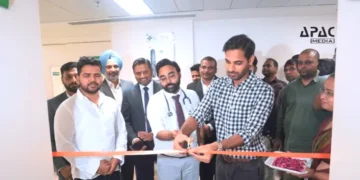


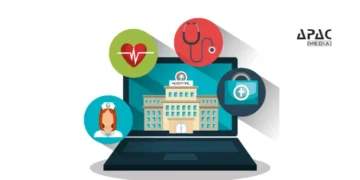




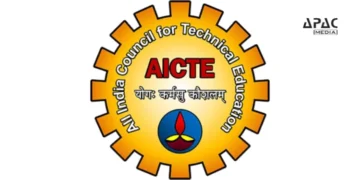













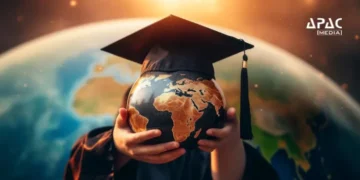










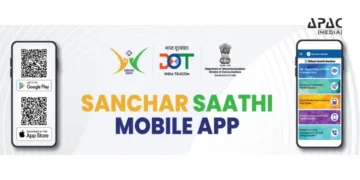









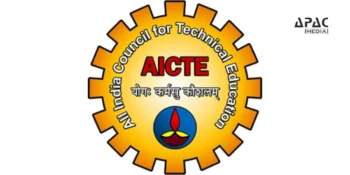










Discussion about this post